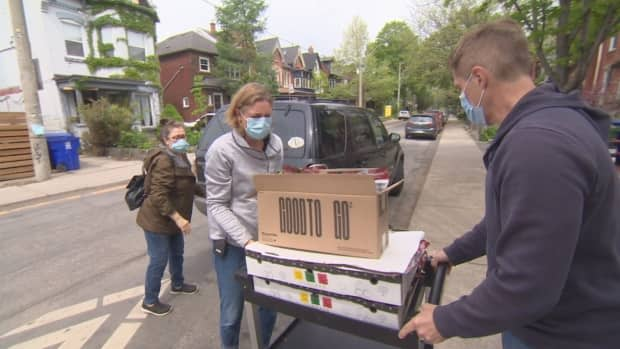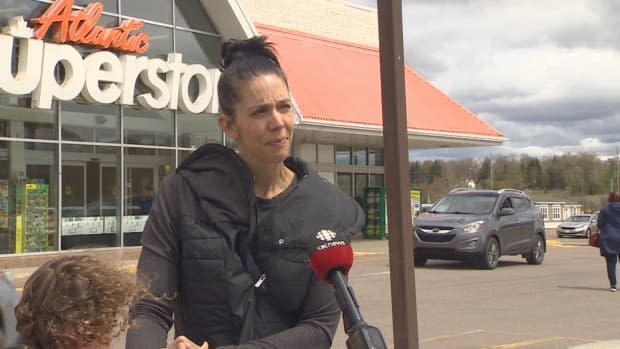Canada's inflation rate inches up again, to new 31-year high of 6.8%

The cost of living continues to rise at the fastest pace in decades, with Canada's official inflation rate rising at a 6.8 per cent annual pace in April, a new 31-year high.
Statistics Canada reported on Wednesday that the cost of living crept higher mainly because of increases in the cost of food and shelter. Food prices have risen by 9.7 per cent in the past year, while shelter costs are up by 7.4 per cent.
Global factors, including the war in Ukraine disrupting the price and supply of grains, as well as outbreaks of bird flu and extreme weather events in the United States, are combining to drive up the cost of meat and produce.
Among the increases:
Fresh vegetables, up 8.2 per cent
Fresh fruit, up 10 per cent
Meat, up 10.1 per cent
Bread, up 12.2 per cent
Coffee, up 13.7 per cent
Pasta, up 19.6 per cent.
"Rising food prices are a global issue, and we can directly correlate those increases to what's happening in Ukraine," economist Royce Mendes with financial services conglomerate Desjardins told CBC News in an interview on Wednesday.
"Food is shipped from all over the world to Canada," Mendes said, "and our weakening dollar makes it more expensive to import."

Food banks see increase in demand
Those on the lower end of the economic ladder are feeling the pinch the most.
Julie LeJeune, the executive director of the Fort York Food Bank in downtown Toronto, says the facility has seen demand for its services increase by about a third in the past year.
Many of the people who use the facility are on some sort of fixed income and they're "not making ends meet right now with inflation prices," she said in an interview. "We're all feeling it and I feel our clients are especially hit."
Demand is so strong that on one day recently, she realized before opening that they were completely out of staples like pasta, rice, tuna, beans and canned vegetables, so she scrambled for supplies from regular local donors.
"The community's really rallying behind us," she said.
Grocery shoppers cut back
It's a similar story across the country. Prince Edward Island has the highest inflation rate in Canada, at 8.9 per cent, and people there are feeling the pinch.
Outside a grocery store in Charlottetown, shopper Russell Tucker told CBC News he is being more choosy when he shops. "I have to look for deals everywhere … but even the deals are getting harder and harder to find."
Fellow shopper Nomi Wheatley says she's cut back on all extravagances to keep food on the table and is "sticking to the essentials."
"We don't get to go out as much. And we're certainly not traveling," she said.

Gas prices ease slightly
Gasoline has been a major driver of inflation lately, but pump prices actually fell by 0.7 per cent in April after spiking by more than 11 per cent the previous month. Compared to where they were a year ago, gas prices are still up by more than a third, however.
Economists had been expecting the overall inflation figure to ease slightly from March's 6.7 per cent level, but instead it went slightly higher. That's a troubling sign that inflation has yet to peak, even though it's at its highest level since 1991.
Inflation has skyrocketed during the pandemic
The U.S. has also seen its inflation rate skyrocket in recent months, but numbers for April suggest that the wave may have crested there, with the official figure cooling to 8.3 per cent in April from 8.5 per cent in March.
"Core inflation has been accelerating in Canada for a few months now, in contrast to the U.S.," Mendes said. "What went up still isn't coming down in Canadian inflation, and might not any time soon."
The high inflation number makes it even more likely that the Bank of Canada will hike its benchmark interest rate at its next policy meeting in early June.

 Yahoo Movies
Yahoo Movies 
